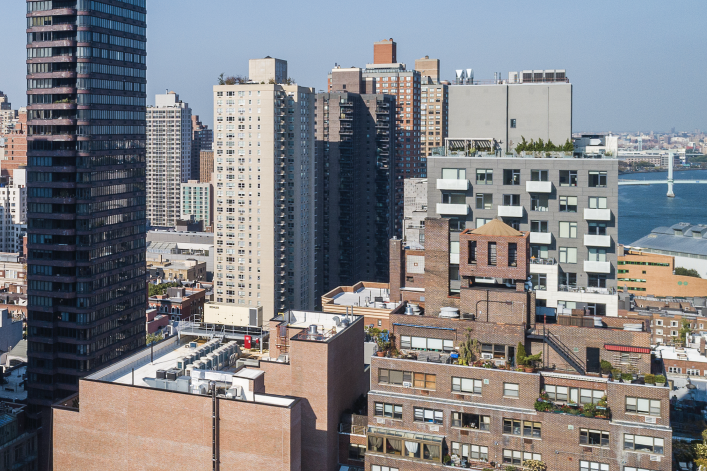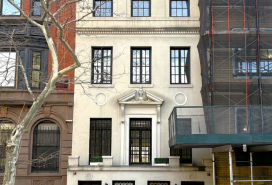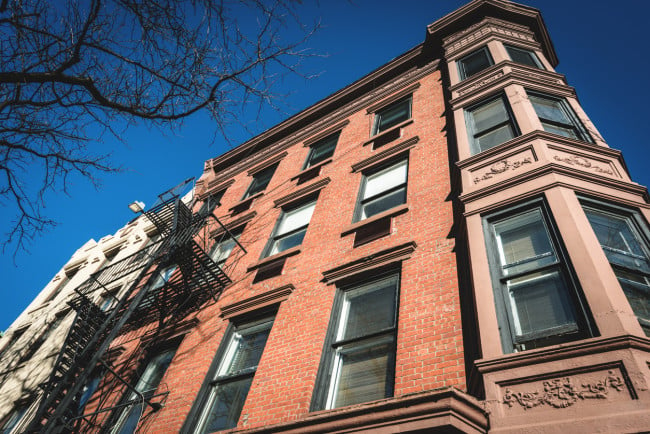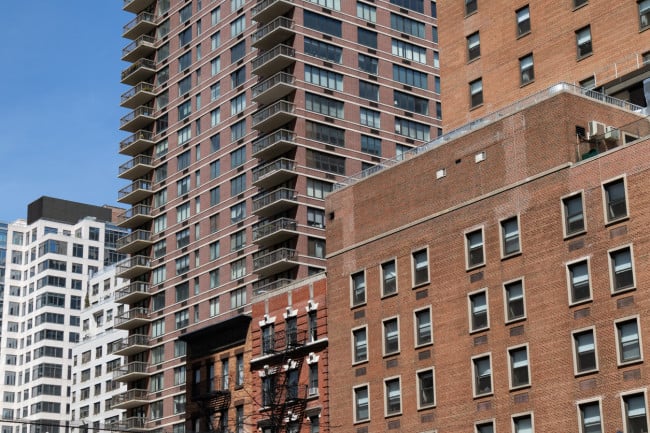What should I look for in an annual financial statement as a condo or co-op buyer?
- The ratio of current assets to current liabilities should be at least 1:1
- Operating costs should be consistent year over year
- Reserve fund should be at least three months of common charges or maintenance

A healthy reserve fund and money spent on capital projects are both signs you will avoid large assessments after you’ve purchased.
iStock
What should I be looking for in an annual financial statement?
You should be able to review a financial statement during the buying process. Understanding this document can help you avoid buying in a building that isn’t well prepared for the future.
“If you are stretching to buy a place and after you move in, you start being hit with big assessments or increases in maintenance that you weren’t anticipating, you may not be able to pay,” says New York City real estate attorney Steven Wagner, a partner at Adam Leitman Bailey, P.C. who represents tenants, apartment owners, co-op and condo boards, and owners.
Among the most important indicators of a well-managed building are a healthy reserve fund, a balanced operating budget, capital investments, and assets that can meet your liabilities.
“There are regularly scheduled inspections for building components like the façade and gas lines but you will want to see additional capital repairs—this information will be disclosed in the financial statement and tells you whether the board is managing those costs appropriately,” Wagner says.
Who prepares a financial statement?
An accountant will typically prepare the financial statement based on information given by the board. The statements are presentations of the financial condition of a company—in this case an apartment building—as of the date indicated. “This typically matches the calendar year from January 1st to December 31st but often includes the months up to the date of the cover letter,” Wagner says.
The cover letter, which accompanies the financial statement, describes the type of financial statement and the level of assessment. For example, a review will rely on information provided by the board. An audit will involve verification of the information by the accountant that the financial picture presented is accurate. A certified audit is the most thorough analysis of the building’s financial condition.
“The level at which the audit is done indicates the degree of reliability but for the most part, you can get an accurate picture of the building’s management from the financial statement,” Wagner says.
What are the building’s current assets and liabilities?
The current assets are usually defined in the financial statement and they will tell you the available money the co-op or condo board has on hand.
“This would include reserve funds that are not restricted in any way as well as operating accounts,” Wagner says. Sometimes reserve funds are held as bonds that mature at different times. The current assets, however, would be funds you can access at short notice.
The current assets can then be compared against the current liabilities, which would include outstanding bills, any taxes due, a few months of a co-op’s mortgage, or electrical bills. “What you want to see is at least a 1:1 ratio,” Wagner says.
In some cases, you see a lot of money in the reserve fund and current asset ratios or 20:1 or 30:1. “In these situations you can be confident you are not going to get hit by assessments,” Wagner says
What is the co-op or condo’s operating budget?
In most cases the financial statement will show you the budget for the year—how much money was raised and how much money was spent. Sometimes, you will also see the prior year or even three years prior.
“What you want to see is that the costs from year to year are about the same,” Wagner says. Operating costs should be consistent year over year.
The operating expenses may go up due to inflation but there should not be radical differences from year to year on the various line items on the financial statement.
“‘Sometimes there can be an explanation for a big variation but having the income and expenses relatively stable is the hallmark of good management,” Wagner says.
How much reserve fund should a building have?
A co-op building should have at least three months of maintenance in reserve. For condos this figure should be higher because common charges do not include any mortgage interest or principle for loans on the entire building, although Wagner says, there are provisions allowing condos to borrow under certain statutes.
Not only do you want to see a healthy reserve fund, but you also want to see that the board can access it.
“If the amounts in reserve are restricted by the bank or the funds are put into financial instruments that come due at certain times, that is important to know,” Wagner says.
There is also usually a note about concentration of funds. If you have more than $250,000 in one bank account, it won’t be insured by the Federal Deposit Insurance Corporation. In these situations, a board may deal through one bank but that bank then invests the money in various other banks in the amount of $249,000 so they have FDIC insurance and will be protected if the bank fails.
Some reserve funds are put into treasuries or bonds paying a slightly higher rate of interest and you’ll want to see the money will be paid back to the depositor at staggered intervals, allowing the board to access the funds.
What are signs of good cash flow for a building?
A co-op or condo building depreciates over time—windows need repairing, there’s pointing, waterproofing, and roof repair needed. You want to see capital investments in the building over time.
“Typically there will be a section in the financial statement on what the money was spent on and even when it was spent,” Wagner says. This is often referred to as the statement of cash flows. There are plenty of NYC buildings that are over 100 years old and in order to combat diminishing value, you need to see a cash flow that’s putting money back into the building.
“You need to be taking care of a building by spending money on it, whether that’s waterproofing, replacing a canopy, refurbishing the lobby, or repairing and upgrading gas and electric lines,” Wagner says.
Signs of an ongoing maintenance and repair program are a plus in the financial statement. “Your chances of being hit by a large assessment or an increase in maintenance charges are reduced if there is evidence of investment in the building,” Wagner says.
In some cases, you may see what Wagner calls “soft costs,” like architectural or engineering fees or attorney’s fees, which are often needed as part of these investments.
What are the notes in the financial statement?
The notes of a financial statement provide additional information about the property. For example, you may discover there is litigation either by the co-op against the tenants or vice versa. Not all litigation is a red flag—but you’ll want to know what it’s about, the amounts involved, and whether there is insurance to cover it.
The notes will also show the balance due on the mortgage and the interest rate. If the mortgage is becoming due, you’ll see this in the notes. “This could be very important in light of rising mortgage rates,” Wagner says.
If there are upcoming projects that could cost millions of dollars, the notes can help you determine “where the funding will come from and whether the reserves are adequate,” Wagner says.
New York City real estate attorney Steven Wagner, a partner at Adam Leitman Bailey P.C., has more than 30 years of experience representing co-ops, and condos, as well as individual owners and shareholders. You can submit a question for this column via email or if you’d like to arrange a free 15-minute telephone consultation with Steve, send an email or call (212) 584-1973.
You Might Also Like


























